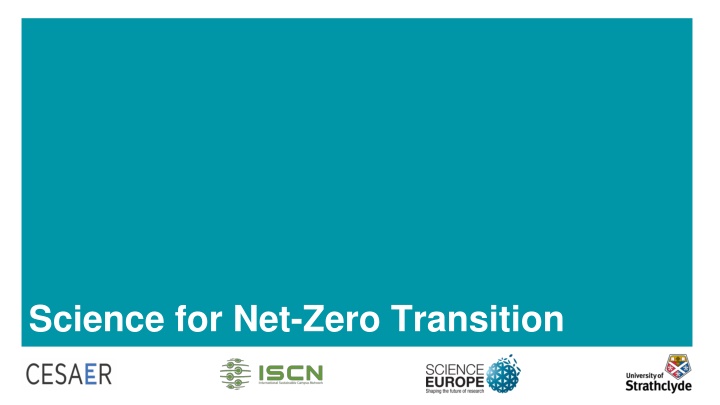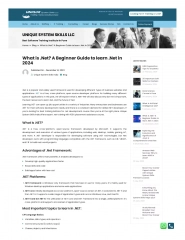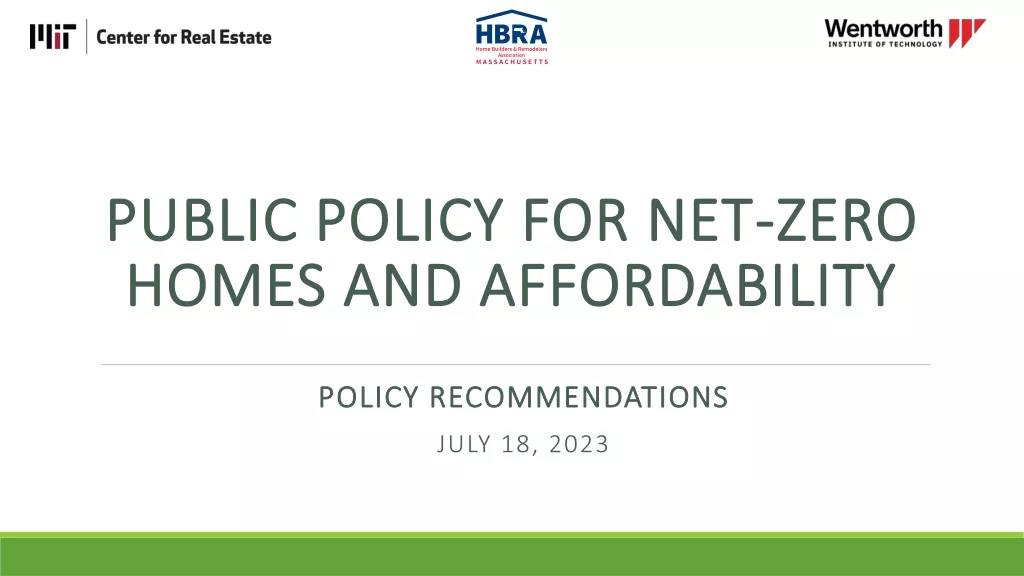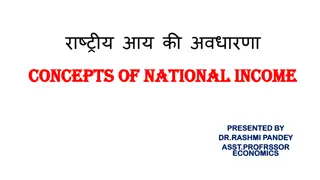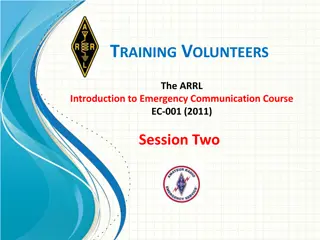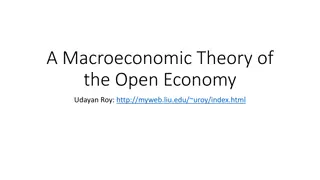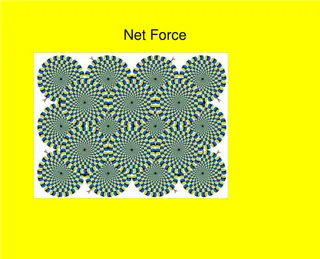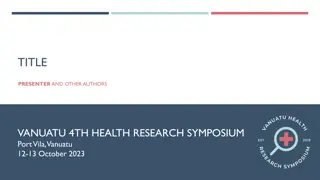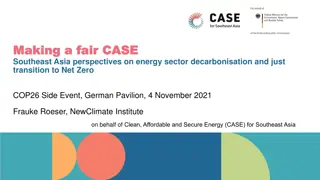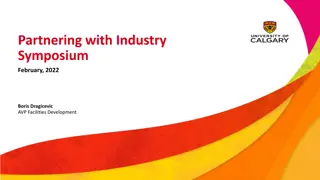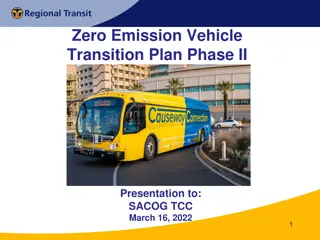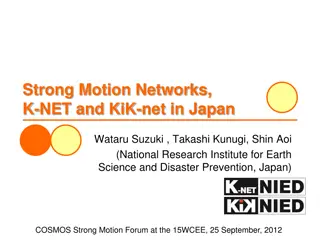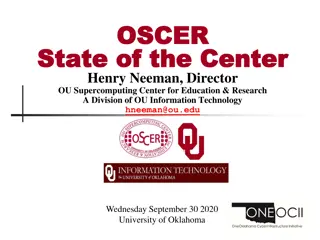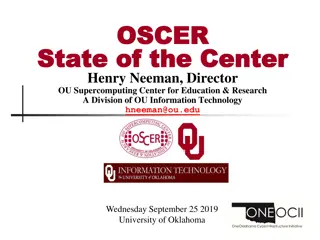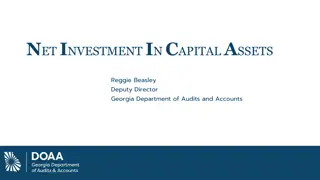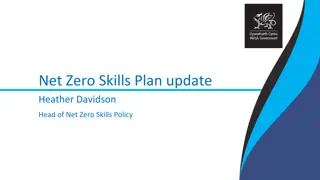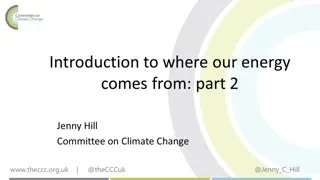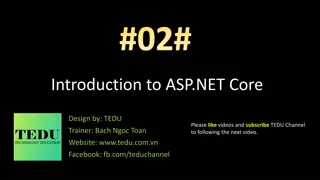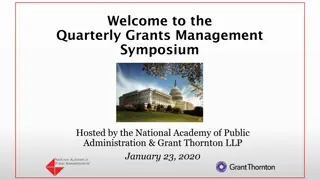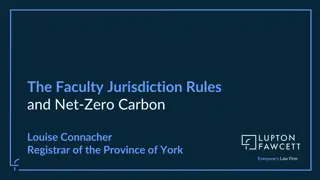Science for Net-Zero Transition Symposium Highlights
The Science for Net-Zero Transition symposium, held during COP26, emphasized the critical need for interdisciplinary research and education programs to address the climate challenge. The event showcased experiences and viewpoints from high-level speakers, advocating for a rapid societal transformation towards net-zero emissions. Key areas of action were outlined, urging research organizations to champion sustainability, develop future leaders, reduce carbon footprints, and support policymaking for a sustainable future.
Download Presentation

Please find below an Image/Link to download the presentation.
The content on the website is provided AS IS for your information and personal use only. It may not be sold, licensed, or shared on other websites without obtaining consent from the author.If you encounter any issues during the download, it is possible that the publisher has removed the file from their server.
You are allowed to download the files provided on this website for personal or commercial use, subject to the condition that they are used lawfully. All files are the property of their respective owners.
The content on the website is provided AS IS for your information and personal use only. It may not be sold, licensed, or shared on other websites without obtaining consent from the author.
E N D
Presentation Transcript
Climate Challenge The Climate Challenge is - Existential for society as we know it - Complex, rapidly changing and uncertain - Impacted by human behaviour and systems interacting with natural ones How should the research system respond? 2
Symposium Science for Net-Zero Transition During COP26 we organised a Symposium on Science for the Net- Zero Transition (8 Nov 2021). The presidents of the four organisations and high level speakers from universities and research organisations shared their experiences and viewpoints. A joint full report of the event was published in 2022. We pledged to continue to work together and collaborate with others across the research system to generate a research system response . Our Call to Action sets out key areas for action. 3
Call to Action to Research Organisations for the Net-Zero Transition (1/3) I. Responding to the complexity of the Net-Zero challenges by addressing them in an interdisciplinary way Advocate cross-disciplinary research and education programmes that foster the rapid transformation of our societies required to address climate change and adaptation. Identify, and deal with, the organisational and cultural barriers that slow down our responsiveness. Implement research support mechanisms and programmes that support multi- and interdisciplinary research with the breadth to deal with these issues. A. B. C. II. Developing the next generation of students and researchers for the Net-Zero Transition Define university programmes for students at all levels and in all disciplines to develop skills needed to realise the Net-Zero Transition according to the various contexts. Develop leadership training to understand sustainability and move towards the Net-Zero Transition. Implement programmes that stimulate a new mindset for researchers that enables them to consider potential environmental and societal implications of their research. A. B. C. 4
Call to Action to Research Organisations for the Net-Zero Transition (2/3) III. Reducing our own organisational carbon footprint Implement the Net-Zero Transition principles in our universities, research organisations, research programs and activities. Identify areas of intervention in our own activity and propose solutions for making our research activities, infrastructure, and university campuses more green by reducing the energy consumption and other environmental impacts. Re-assess the need for teaching and research related travel by reinforcing alternatives, such as online meetings and rethinking in- person activities. A. B. C. IV. Supporting the Net-Zero Transition in policymaking at all levels. Engage with communities and governments at all levels in policy development for the integration of the Net-Zero Transition goals. Develop guidelines and share practices with others. Support the adoption of Net-Zero Transition principles in all policy areas, beyond universities and science policies. A. B. C. 5
Call to Action to Research Organisations for the Net-Zero Transition (3/3) V. Improving the shared understanding of what needs to be done. Provide scientific contributions to raise awareness mobilising the different audiences involved. Improve how science is communicated to, and created with, citizens, acknowledging the different needs and highlighting context- specific challenges. Contribute to evidence-based policy by providing and supporting expertise able to translate research outcomes, linking with and enabling leaders to deliver for the communities they serve. A. B. C. VI. Facing the challenges together. Encourage cross-sectoral collaboration by involving other stakeholders as appropriate (businesses, NGOs, cities and regions, and other stakeholders) in joining efforts to achieve the Net-Zero Transition. Promote international collaboration, cooperation and learning to bring global understanding of the challenges posed and to build bridges between cultures, countries, and continents. Recognising the complexity of the challenges we face, we agree to adopt systems-thinking and approaches in bringing together the expertise and societal partners required to address them, and we recognize our responsibilities to engage aligning policy objectives to maximise the effectiveness of our effort. A. B. C. 6
Call to Action to Research Organisations for the Net-Zero Transition Accelerating our joint efforts We acknowledge that actions will be developed by each organisation according to their distinctive missions, visions, and priorities. Further, we understand the complexity of this challenge, and will endeavour to support and enable actions that accelerate the Net-Zero Transition by learning and collaborating. We invite other organisations that share our vision to commit to these actions and work with us towards a sustainable future with Net-Zero emissions, joining us in future COP meetings to assess progress. 7
Towards COP27: Interdisciplinarity for Net-Zero Transition Following the commitments taken during COP26, we plan to contribute to COP27, Sharm El-Sheikh, Egypt, 7-18 November 2022). The joint event could have the following goals (possibly under the first theme Adaptation and resilience and linked to tier 1): Report on the progress in achieving the Call to Action; Engage together research funders and performers, and universities/higher education institutes; Academia/industry/society collaboration. Proposed theme: interdisciplinarity for the Net-Zero Transition Preliminary, ongoing talks with other networks to join the Call to Action 9
